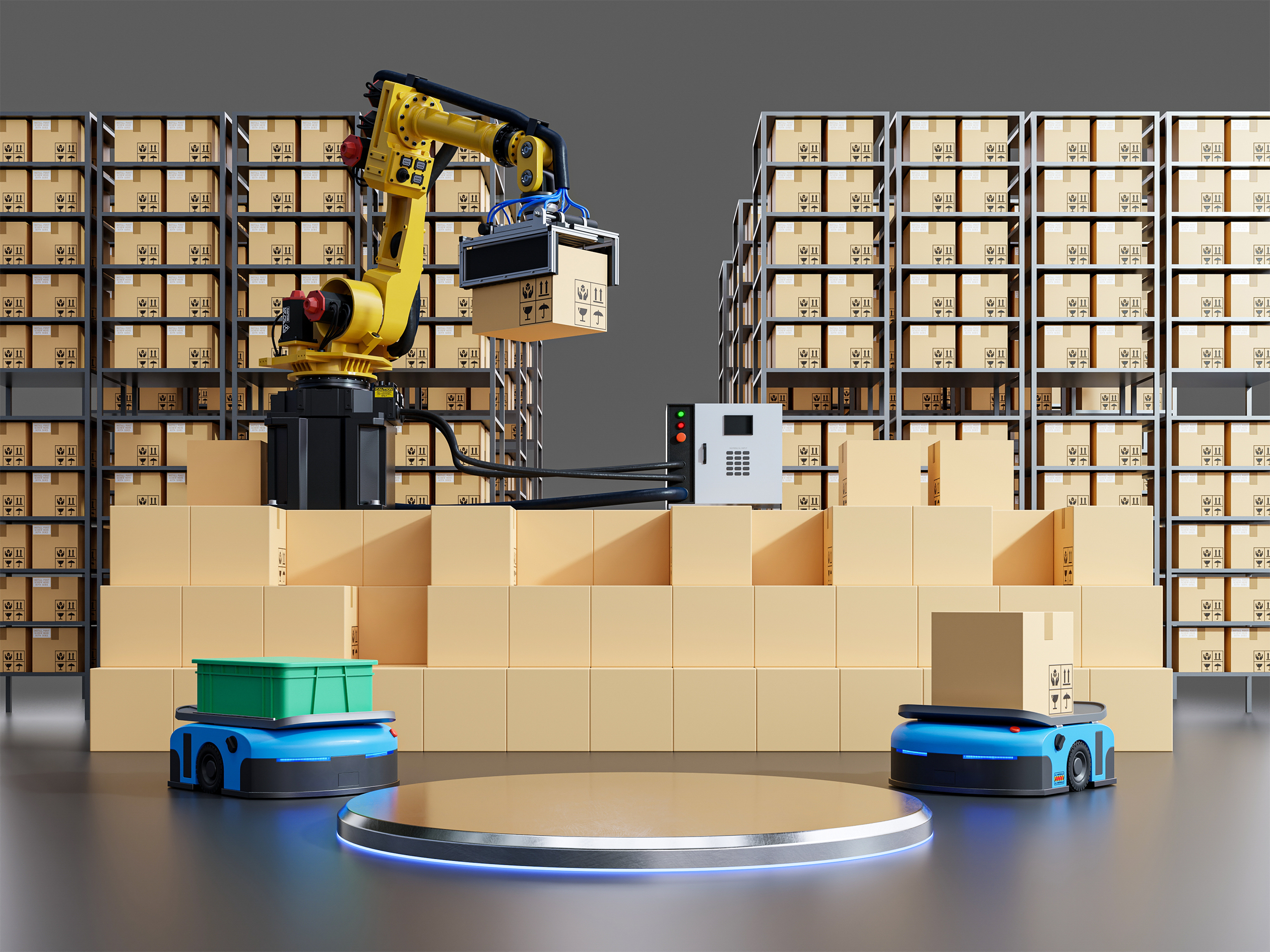The logistics industry is an ideal application for increased use of autonomous systems.
The past two years of the Covid-19 pandemic have had a profound impact across every part of society, often in unexpected ways. In particular, the pandemic exposed weaknesses in supply chain infrastructures that are still being felt today. The pandemic led to a simultaneous boom in online ordering and a shortage of warehouse workers that still hasn’t fully abated. Moreover, while many businesses have found ways to adapt in the time since, too many are still vulnerable to disruption should another pandemic—or a new strain of the current pandemic—once again lead to a spike in demand or a depleted workforce.
The good news is that there is a logistics solution available that will harden businesses against unforeseen upheavals, while also making their current operations more reliable and efficient. That solution is warehouse automation.
Large businesses, such as Amazon, have already adopted autonomous or partially roboticized solutions for their inventory management, as well as for various aspects of order processing. While these options once may have seemed out of reach for all but the largest companies, the truth is that their value has now been proven. It’s time for more businesses to begin adopting autonomous solutions for their warehouse management. Here are three reasons why.
1. Faster responsiveness.
Many global market demands follow trends that are possible to forecast. They follow seasonal patterns, or are in line with a trajectory that can be reliably measured and traced. That said, volatility is also a regular factor many businesses must contend with, and those who can learn to expect the unexpected stand a better chance of weathering the storms that come their way.
Automation can address both sides of this coin. Advanced data analytics give companies insight into ordering trends, helping them to predict inventory needs. At the same time, systems that run using robots or are robot-assisted can help businesses shift their operations faster should the need arise, because it’s easier to have a team of robots work extended hours than to schedule more overtime shifts.
Automated inventory tracking is only part of the picture, however. A smart warehouse combines inventory monitoring with automated ordering and restocking. For instance, a robot taking inventory off the shelf can report in real time back to the system, which can trigger an order any time stock dips below a certain threshold. The robot can then receive the new shipment and restock the shelves with minimal human oversight.
2. Reduced reliance on personnel.
Many businesses already have busy periods that require them to temporarily hire a larger workforce. Hiring, training, scheduling, and managing that workforce each year is a significant cost. If a portion of that workforce could be supplemented or replaced by automation, it wouldn’t just resolve the seasonality of labor needs, it would also smooth out unexpected peaks in demand at other times of the year, or could fill in during a worker shortage.
Robots carry an additional advantage in that aren’t trained so much as programmed. Once one robot is programmed to perform a task in a specific way, other robots can more reliably be programmed to follow suit. This significantly reduces training costs, while also helping to ensure operational uniformity.
Speaking of worker shortages, one of the greatest disrupters during the pandemic was the inability for many factories to operate with workers who were out sick themselves, or home caring for sick family members. Subsequently, many businesses have struggled to attract workers to warehouse jobs, which are often exhausting and tedious. Many workers simply don’t want these jobs, and are seeking more fulfilling employment elsewhere. In other words, robot-run warehouses may soon move from the realm of novelty to that of necessity.
3. Fewer errors, accidents, and injuries.
Part of what makes robots so well-suited to warehouse work is that the labor itself can take a toll both physically and mentally on human laborers. People grow tired and make mistakes—especially at the end of a long shift or right before they take a lunch break. These errors are only human, and there’s only so much a business can do to prevent them from happening. When errors do occur, it can lead to damaged customer relationships, or a loss of revenue. In more extreme cases, weariness and exhaustion can result in a worker being injured, sometimes with lasting consequences.
Needless to say, accidents and errors are less of a concern with robot workers. A robot will operate with the same diligence at the beginning of a day as at the end. And while a robot will need maintenance, this down time can be scheduled for, and once repaired, the robot can continue operating with the same efficiency as before.
Warehouse automation is the best solution to prepare logistics companies for the future.
If the past two years have shown us anything, it is that the world is more interconnected than most of us can fully comprehend. While that interconnectedness is often a source of efficiency, it can also expose businesses to unforeseen setbacks. Automation is a response that not only mitigates these risks, but helps businesses achieve greater operational efficiency during standard working conditions.
Eagle Technologies has weathered seventy years of global economic transformation. We understand what it means to keep a business healthy for the long term. As automation experts with experience in over a dozen industries, we have both the breadth and depth of knowledge to help your business achieve its automation goals. Contact us today to learn more about what we can do for you.
![]() Connect With Eagle Technologies LinkedIn
Connect With Eagle Technologies LinkedIn
Eagle Technologies, headquarters in Bridgman, MI
Eagle builds the machines that automate manufacturing. From high-tech robotics to advanced product testing capabilities, Eagle offers end-to-end manufacturing solutions for every industry.

